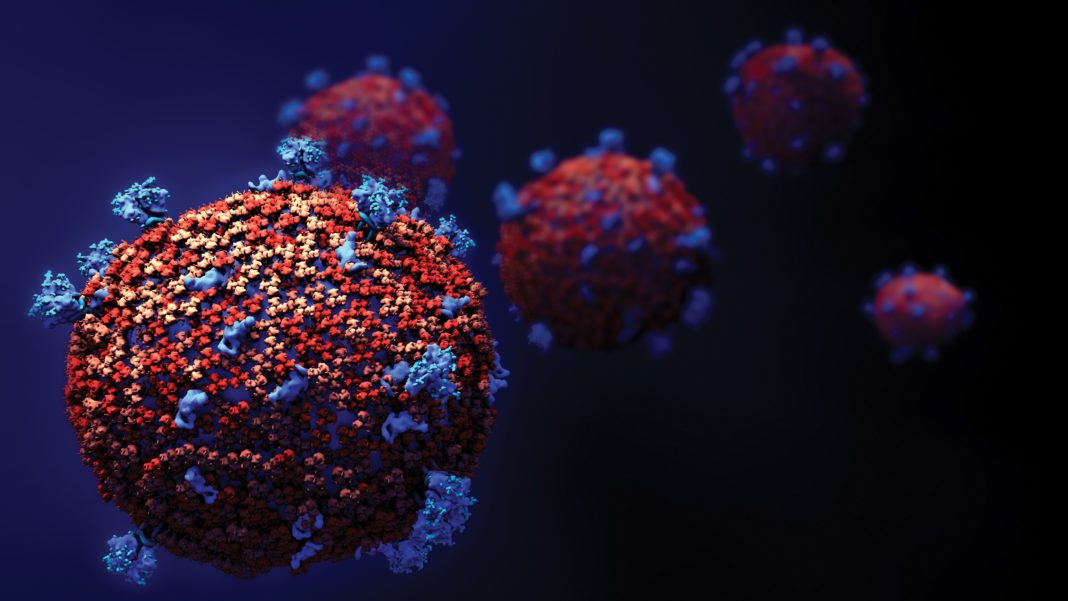The chaperone protein GRP78 has been implicated in the spread of viruses and is known to play an essential role in the spread of SARS-CoV-2. Now, a new study suggests that blocking the production of GRP78, or inhibiting its activity with a new targeted drug, greatly reduces the replication of SARS-CoV-2. This suggests that this drug could potentially offer a new type of protection against COVID-19—one that might remain effective even as new strains develop.
This research is published in the journal Nature Communications in the article, “The stress-inducible ER chaperone GRP78/BiP is upregulated during SARS-CoV-2 infection and acts as a pro-viral protein.”
“A major problem in fighting SARS-CoV-2 is that it is constantly mutating and adapting itself to more efficiently infect and multiply in its host cells,” said Amy Lee, PhD, professor of biochemistry and molecular medicine at the Keck School of Medicine of USC. “If we keep chasing the virus around, this could become quite challenging and unpredictable.”
Searching for a more stable way to combat COVID-19, Lee and her colleagues began exploring the role of GRP78—a key cellular chaperone protein that helps regulate the folding of other cellular proteins. The researchers had shown previously that, during a SARS-CoV-2 infection, GRP78 is hijacked to work in tandem with other cellular receptors to bring the virus inside cells. But questions remained about whether GRP78 is necessary for SARS-CoV-2 replication inside human lung cells.
Examining human lung epithelial cells infected with SARS-CoV-2, the research team observed that as the viral infection intensifies, the infected cells produce higher levels of GRP78.
When Lee and her team suppressed production of the GRP78 protein in human lung epithelial cells in cell culture, and those cells were later infected with SARS-CoV-2, they produced a lower amount of the viral spike protein and released much less of the virus to infect other cells.
“We now have direct evidence that GRP78 is a proviral protein that is essential for the virus to replicate,” Lee said.
To further explore whether targeting GRP78 could work to treat COVID-19, the researchers tested the small molecule drug HA15 on infected lung cells. This drug, developed for use against cancer cells, specifically binds GRP78 and inhibits its activity.
“Lo and behold, we found that this drug was very effective in reducing the number and size of SARS-CoV-2 plaques produced in the infected cells, in safe doses which had no harmful effect on normal cells,” Lee said.
The researchers then tested HA15 on mice that express a human SARS-CoV-2 receptor and were infected with SARS-CoV-2. The viral load in the lungs was reduced.
Separately, Lee and her colleagues are studying the efficacy of HA15 in cancer, as well as another GRP78 inhibitor, YUM70, in collaboration with researchers at the University of Michigan. They discovered that HA15 and YUM70 can suppress the production of mutant KRAS proteins—a common mutation that tends to resist drug treatment—and reduce the viability of cancer cells bearing such mutations in pancreatic, lung, and colon cancer. Those findings, just published in the journal Neoplasia, suggest targeting GRP78 may help combat these deadly cancers.
Further research, including clinical trials, is needed to establish that HA15 and YUM70 are safe and effective for use in humans. These and other GRP78 inhibitors are now being tested as treatments for both COVID-19 and cancer. These drugs may also prove useful for treating future coronaviruses that depend on GRP78 for entry and replication, Lee said.


